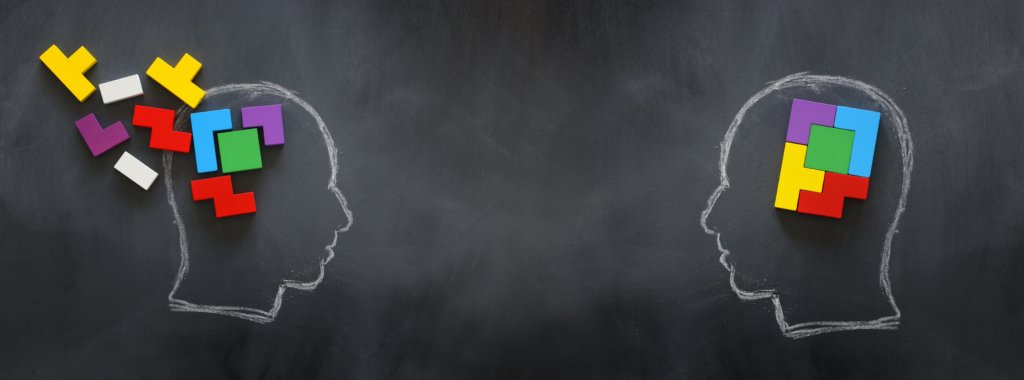Many people experience ADHD and addiction separately, but several of them do not. Instead, approximately 15% of those with ADHD also abuse or are dependent on drugs or alcohol, making this one of the most common co-occurring disorders. But before we get into ADHD and addiction as a pair, let’s talk about ADHD.

What is ADHD?
ADHD is a behavior disorder that is characterized by hyperactive behavior, inability to pay attention or focus, and impulsivity. ADHD is most noticeable in children because they may experience difficulty focusing in school and at home. In addition, they experience problems keeping their impulses under control and being unable to manage their hyperactivity. These symptoms stick out like sore thumbs in children, especially because adults are more versed in managing their behaviors.
Some of the most common symptoms associated with ADHD in children include:
- Being easily distracted
- Problems finishing tasks
- Forgetfulness
- Frequently losing or misplacing things
- Constant fidgeting
- Problems listening to others
- Inability to control speech or actions
- Troubles with organizing projects
- Difficulty managing responsibilities
For someone with ADHD, life can feel constantly chaotic and out of control. Even in the smallest of children with this behavior disorder, their lives may feel overwhelming to them. It is no secret that ADHD is one of the most challenging behavior disorders a person can have. Regardless of age, though, ADHD can be difficult to learn how to manage independently.
Statistics of ADHD
Attention-deficit/hyperactivity disorder, or ADHD, is a common behavioral disorder that is most prevalent in school-aged children. The Centers for Disease Control and Prevention report that approximately 11% of children in America have ADHD. Surveys show that 2.4% of children between ages 2 and 5 have been diagnosed with ADHD. In addition, 9.6% of children diagnosed with ADHD are between the ages of 6 and 11. The average median age for the onset of symptoms of ADHD is six years old.
While ADHD is certainly more common in children than in adults, that does not mean that adults cannot be diagnosed with this behavioral disorder. In fact, the National Institute of Mental Health (NIMH) reports that the overall rate of ADHD in adults is 4.4% of the population.
What is also more common in adults than in children is the disease of addiction. More than 21 million people in the United States are addicted to drugs and/or alcohol. Alcohol is the most widely abused substance across the board, while street drugs like heroin and meth follow close behind. The prescription drug crisis facing the country has more adults than ever before abusing medications like OxyContin, Ativan, Vicodin, and even the ADHD medication Adderall.
How are ADHD and Addiction Connected?
Addiction is a chronic, relapsing disease of the brain that is characterized by the continued, uncontrollable abuse of mind-altering substances despite the damages the use causes. As mentioned before, more than 21 million Americans are addicted to drugs and alcohol. For every addict or alcoholic, there is a story behind the development of their addiction. And for some, that story is closely linked to ADHD.
People who have a mental illness, disability, or disorder are oftentimes at greater risk for abusing drugs and alcohol at some point in their lives. So, it comes as no surprise that individuals with ADHD have a higher risk factor for becoming addicts or alcoholics than those individuals who do not have this or other disorders. Why is this? Consider the following:
Impulsivity
Impulsivity is one of the top symptoms of ADHD. Those with ADHD tend to be reactionary and many times do not favor the idea of thinking about doing something prior to doing it. People who are impulsive, regardless of if they have ADHD or not, are more likely to experiment and abuse drugs and alcohol because of their difficulty with thinking their actions through prior to engaging in them.
Problems slowing down
Just because people with ADHD may appear to not be bothered by running a mile a minute does not mean that it doesn’t upset them. A major downside of ADHD is that those who have it may feel trapped by their symptoms. Meanwhile, they may want to be less hyperactive or impulsive. When this is the case, a person may look to alcohol or drugs to help self-medicate their symptoms to reflect what it is that they want for themselves. The longer that this type of self-medication occurs, the more likely it becomes for a person to become fully addicted to the substances they are using.
Interpersonal problems
People with ADHD often experience symptoms such as forgetfulness, misplacing things, and trouble listening to others. This can make developing and maintaining healthy relationships extremely difficult. The emotional pain, discomfort, and guilt that a person with ADHD can feel because of these symptoms can cause them to isolate from others and become lonely and sad. This is a perfect storm for substance abuse, as the idea of being able to take away the pain with a pill or a drink becomes more and more appealing.
Having ADHD and an addiction at the same time can make the symptoms of both conditions much worse. Depending on the substance that a person is abusing, they can easily begin developing mood swings, symptoms of anxiety, and physical health problems like gastrointestinal issues. Those symptoms will exacerbate the symptoms of the ADHD, creating a never-ending cycle of unmanaged symptoms and substance abuse.
ADHD and Addiction Treatment in Los Angeles, CA
If you are struggling with and addiction and a condition like ADHD, call us right now. We understand the challenges that you are experiencing and know that we can help you begin recovery. Contact us now to learn more about how we can help you cope with the symptoms of ADHD in ways that foster a healthy, sober life. Our team is ready and willing to answer any questions you may have.





